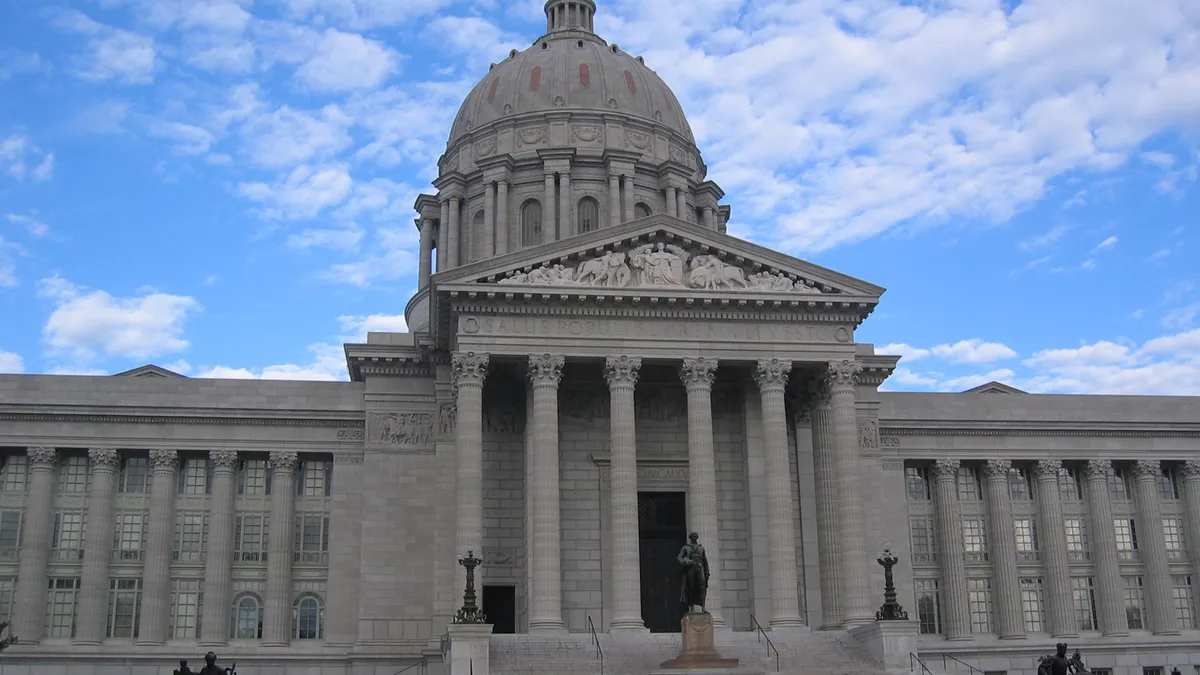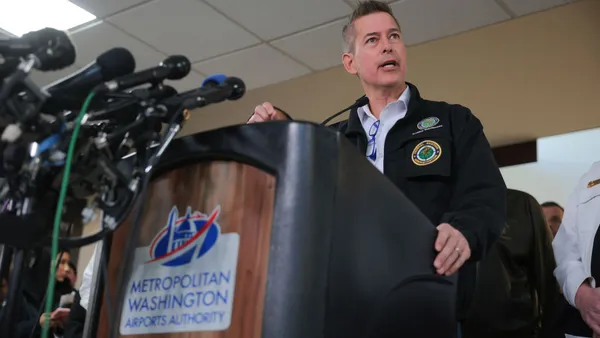Dive Brief:
- Missouri Gov. Michael Parson last week signed HB 1729, a bill repealing a portion of the state's prevailing wage law. The bill will go into effect Aug. 28, 2018.
- Once the new law takes effect, prevailing wage rates won’t be paid on public works projects with an accepted bid or estimated cost of $75,000 or less. For non-exempt projects, workers will either receive the prevailing wage or the public works contracting minimum wage. If there are 1,000 or more reportable work hours for occupations in a particular locality, then the prevailing wage will apply. Otherwise, workers will receive the contracting minimum wage, which is 120% of the average hourly wage in the project's locality.
- The bill also exempts public works projects of $10,000 or less from the competitive bidding process and limits the combined total of entry-level workers and federally registered apprentices earning on-the-job training to a one-to-one ratio with journeymen on the project. The rate of pay for workers who are there gaining on-the-job experience will be 50% of the corresponding journeyman's wage rate. Republican Rep. Jeff Justus, the legislation's sponsor, said the repeal would help reduce construction and maintenance costs for rural and small-community projects like schools, according to the St. Louis Post-Dispatch.
Dive Insight:
Proponents of a repeal of Indiana's prevailing wage law also argued that such a move would lower the cost of public construction projects by 10% to 20%. However, a Midwest Economic Policy Institute analysis of post-repeal projects in Indiana found that without the Common Construction Wage in place, there have been no actual cost savings realized on public construction projects. In addition, the institute determined that worker wages dropped 8.5%, productivity decreased 5.3%, job growth dropped 1.5%, that there was no shift in the percentage of union workers on projects and that no companies had gained a predicted competitive advantage.
Parson's predecessor, former Gov. Eric Greitens, led the pro-business charge in Missouri before he resigned, overseeing the passage of a right-to-work law that prevents workers from having to pay union dues or join a union when working on union projects.
Under Greitens' leadership, state lawmakers also passed legislation banning local governments in Missouri from requiring project labor agreements on taxpayer-funded jobs.
Greitens took heat from trade unions and state Democrats amid claims that these measures would lower both wages and the quality of work, but the Republican governor maintained that they would create a more business-friendly environment and encourage job growth in the state.












